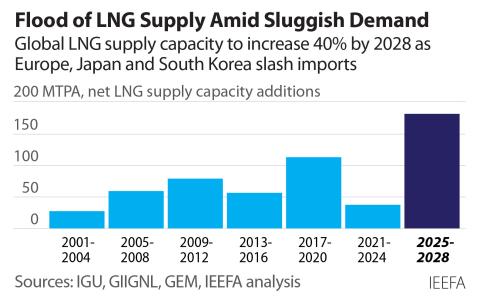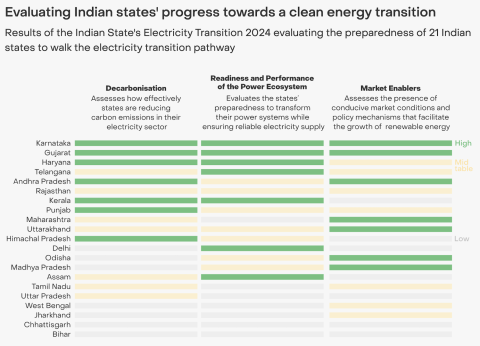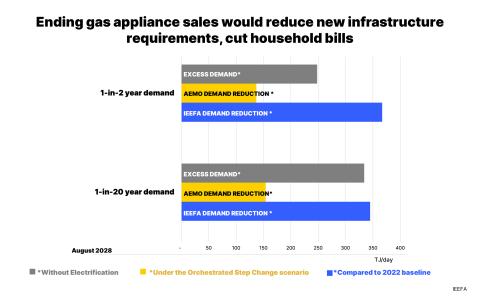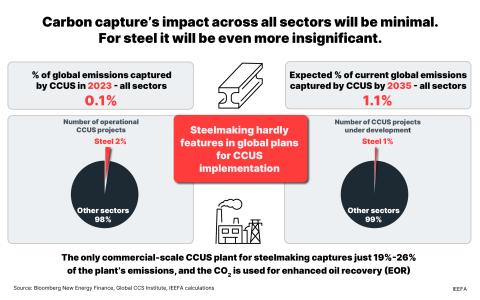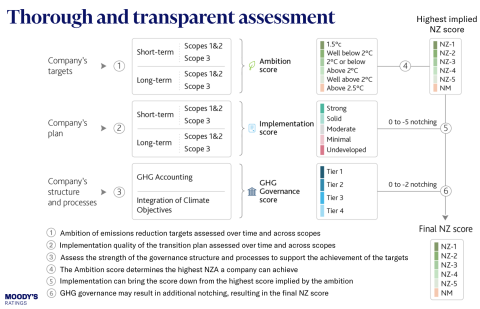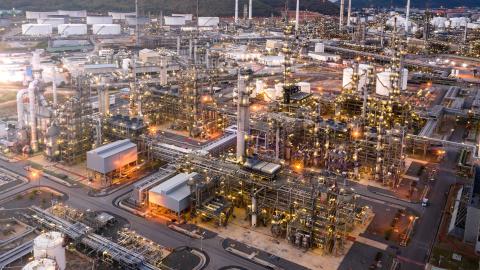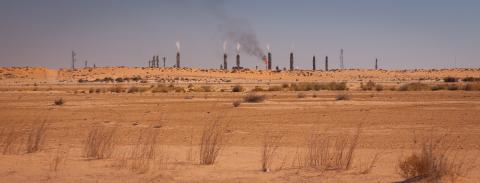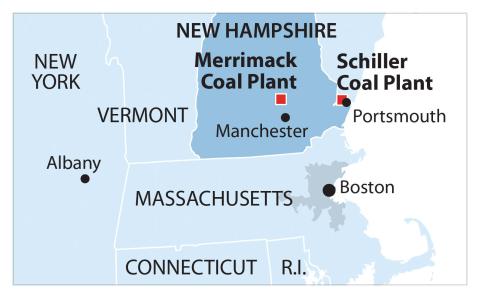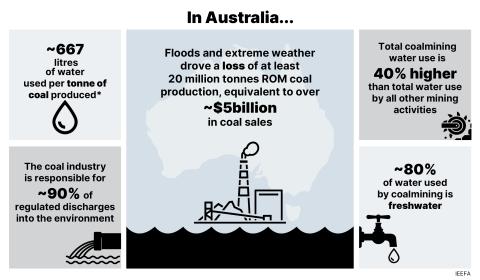
Key Findings
South Korea was burdened with US$17 billion additional costs for LNG-fired power generation in 2022 due to utilities’ overreliance on fossil fuels.
A lack of competitiveness and politicized power tariffs in South Korea led to state-run utility’s financial instability and repetitive reliance on bond issuance for loss mitigation, creating a “vicious cycle.”
Slow adoption of renewable power generation is a missed opportunity to reduce power prices and has increased South Korea’s exposure to environmental externality costs.
Executive Summary
This report examines how and why South Korea’s “power tariff trilemma” – the interconnected challenges of energy security, competitiveness and sustainability – has contributed to rising electricity bills, analyzing the root causes of high power prices through the lens of these three key energy policy perspectives.
Firstly, South Korea has long pursued fossil fuel-oriented energy security under the strong belief that securing fossil fuels will guarantee a stable and affordable supply of electricity. However, this view faced headwinds as the Russia-Ukraine war in early 2022 upended global gas markets.
Soaring fossil fuel prices, especially liquefied natural gas (LNG), triggered sharp increases in both fuel costs and wholesale electricity prices. South Korea's heavy reliance on a fossil fuel-intensive power mix (58.5% in 2023), coupled with a high share of LNG (26.8%), made LNG price spikes a key determinant of the wholesale electricity market’s system marginal price (SMP), pushing up electricity tariffs.
IEEFA estimates South Korea’s total LNG fuel cost in the power sector in 2022 was ₩33 trillion (US$25 billion). Based on three scenario analyses, IEEFA found that South Korea was burdened with additional costs of ₩22 trillion (US$17 billion) for electricity in 2022 compared with 2021,
or ₩432,015 (US$326) per person due largely to South Korea’s overreliance on fossil fuels.
Secondly, a lack of competitiveness in South Korea’s domestic power market, coupled with the global energy crisis, exacerbated surging wholesale power prices and worsened the already tenuous financial situation of the state-run power utility, Korea Electric Power Corporation (KEPCO).
This report identifies South Korea’s regulated power pricing mechanism as one of the root causes of KEPCO’s mounting debts. Since 2022, the South Korean government opted to combat inflationary impacts of the global energy crisis by maintaining low end-user power tariffs, which ultimately required KEPCO to sell electricity to consumers at prices that did not fully cover skyrocketing fuel costs.
Low regulated prices aggravated KEPCO’s financial troubles, leading the company to issue more government-backed bonds. This situation raises concerns that KEPCO might be less incentivized to reduce costs, such as strategic fuel procurement, and prioritize short-term solutions over long-term investments, including fuel-pricing mitigating additions of renewable energy. Meanwhile, creditors might overlook effectively monitoring KEPCO’s financial performance and risk management practices amid government backing.
As a result, KEPCO’s debts mounted to ₩202.5 trillion in 2023. Meanwhile, the renewable power capacity of KEPCO and its subsidiary generation companies (GENCOs) was just 1.9% of the country’s total power capacity. By contrast, Independent Power Plants (IPPs) held more than 10 times the renewable energy capacity of GENCOs and KEPCO combined, which was 19.8%. This underscores the lack of product innovation efforts by the KEPCO and GENCOs. Worsening financial instability and lagging decarbonization efforts by KEPCO could increase the government deficit and potentially tax and utility bills for future generations.
As a result, the lack of competitiveness in the power sector hinders sustainability goals, undermining the transition to more affordable, reliable and clean energy sources.
The lack of competitiveness in the power sector hinders sustainability
goals, undermining the transition to more affordable, reliable and clean energy sources.
Regarding the third facet of South Korea’s power tariff trilemma, the delayed transition to renewable power generation has contributed to rising climate-environmental tariffs, a component of the country’s power pricing formula. Instead of directly investing in renewable energy generation, KEPCO and GENCOs have often chosen to purchase Renewable Energy Certificates (RECs), leading to higher costs amidst limited supply.
Lackluster renewable energy investment in South Korea carries opportunity costs for the country since renewable technologies are increasingly at cost parity with conventional energy sources. By not transitioning more quickly, the country may miss out on significant power generation cost reductions. Additionally, growing international climate initiatives, such as the Renewable Energy 100 (RE100), Europe’s Carbon Border Adjustment Mechanism (CBAM) and the Sustainable Finance Disclosure Regulation (SFDR), could impose increasing negative externality costs on South Korea due to its delayed energy transition.
In summary, this report identifies three key factors keeping South Korea’s power costs high. First, the approach to energy security based on fossil fuel importation has proved vulnerable to global market disruptions. Second, structural issues in South Korea’s power market have hindered competitiveness, exacerbated financial troubles at state-owned energy companies, and dampened incentives for innovation and cost reductions. Third, the slow adoption of renewable energy sources is a missed opportunity to reduce power prices and has increased South Korea’s exposure to environmental externality costs.
Further, IEEFA is presenting the following recommendation:
- Reduce reliance on fossil fuels in the power mix and expedite the transition to clean energy sources.
- Reform power pricing to reflect actual costs and avoid politically motivated determination of electricity tariffs.
- Address KEPCO's financial challenges through cost-cutting measures and innovation focused on renewable energy.
- Accelerate the renewable energy transition to mitigate rising power costs associated with delays and achieve declared decarbonization goals.


